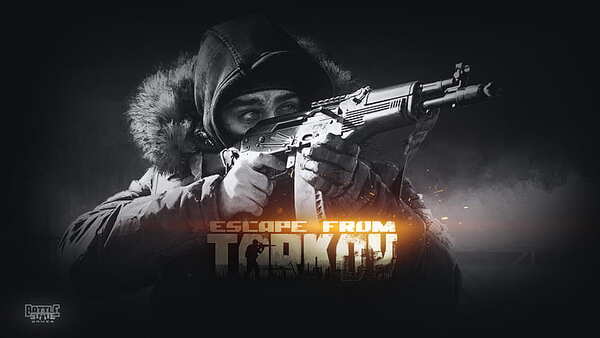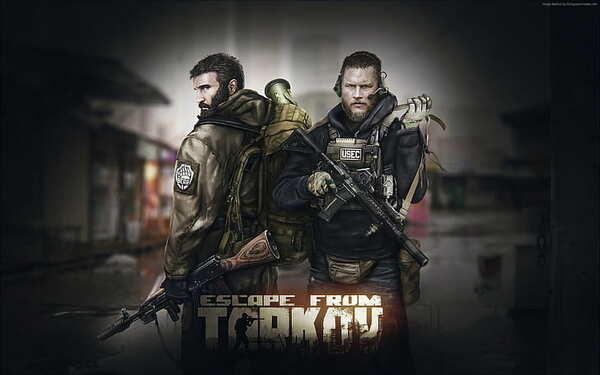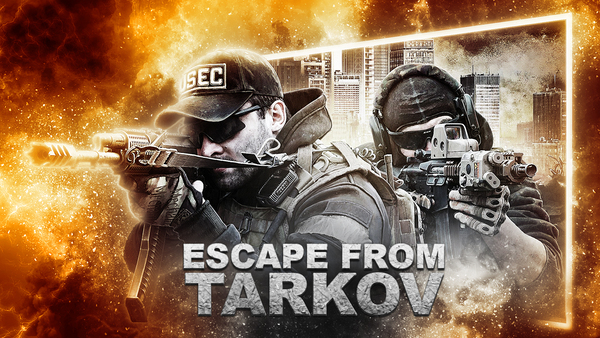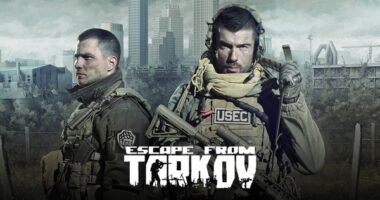Escape from Tarkov, developed by Battlestate Games, is not your average first-person shooter (FPS). It combines elements of hardcore survival, realistic combat, and complex player-driven economies. While the intense gunfights and tactical realism draw players in, a unique issue has emerged over the years that differentiates Escape from Tarkov from many other games: its in-game economy. The in-game economy is heavily influenced by players, and the way it evolves over time can have a profound effect on gameplay, balancing, and player satisfaction.
This article will dive deep into the challenges of maintaining a balanced player economy in Escape from Tarkov. How does the game’s economy work? Why is it so prone to player manipulation? And what can be done to mitigate these issues without undermining the core appeal of the game?

Introduction
In Escape from Tarkov, the stakes are incredibly high. Players must loot, fight, and survive while managing limited resources. What makes the game so distinctive is that everything found during a raid—whether it’s weapons, ammo, or valuable items—has real economic value in the game’s market system. These items can be sold to traders or other players, giving rise to a player-driven economy.
However, the economy in Escape from Tarkov doesn’t always function smoothly. Prices fluctuate wildly based on supply, demand, and in-game events, creating a chaotic economic environment. This not only affects the in-game market but also player progression, gear access, and overall enjoyment. Let’s take a deeper look at the intricacies and challenges of the game’s economy.
The Player-Driven Economy Explained
H3 – How the In-Game Economy Functions
Unlike many games that use fixed vendor prices and currency systems, Escape from Tarkov features a more dynamic economy. Players can trade items they collect in raids either with NPC traders or on the Flea Market, a player-to-player trading hub. This open market approach means that item prices fluctuate based on what players bring back from raids, what they’re willing to pay, and how scarce certain items are.
H4 – The Role of Traders and Flea Market
The NPC traders in Tarkov offer a baseline for item prices, but once players unlock access to the Flea Market, prices can fluctuate significantly. Items like high-tier weapons, medical supplies, and rare crafting materials often sell for far more than their value with NPC traders. This is where the economic manipulation begins.
Supply and Demand Issues
H3 – Scarcity and Item Hoarding
A major factor influencing the Tarkov economy is the scarcity of certain items. Players often hoard high-value items, such as rare ammunition or medical supplies, to either sell them at inflated prices or to keep them for personal use in future raids. This hoarding behavior creates artificial scarcity, driving up the price of these items on the Flea Market.
H4 – Example: The Ammo Shortage
In past wipes (when the game resets player progress), specific types of high-penetration ammo have become so scarce that players began hoarding them for late-game use. This drove prices through the roof on the Flea Market, making it nearly impossible for casual players to afford them, thus putting them at a disadvantage in firefights against better-equipped opponents.
H3 – Price Fluctuations and Inflation
With prices constantly in flux due to player behavior, inflation becomes a huge problem. Players who know how to manipulate the market can buy low and sell high, amassing fortunes of in-game currency (Roubles). This leads to a widening gap between wealthy players and those struggling to afford basic gear.
H4 – Gear Disparity: A Problem for New Players
This economic imbalance affects the overall player experience, especially for newcomers. High-level players can afford the best armor, weapons, and medical supplies, while new players struggle to gather the bare essentials. This disparity creates frustration for new players, as they often face off against better-geared opponents who have far more resources.
Player Manipulation of the Economy
H3 – Market Manipulation Tactics
Some players take advantage of the Flea Market to manipulate item prices. This can be done in various ways, from monopolizing a specific item by buying out all available stock to undercutting competitors in order to dominate a particular segment of the market.
H4 – Example: Control of High-Tier Armor
In one instance, players noticed that certain high-tier armor sets were being completely bought out from the market, only to be relisted at much higher prices. This artificially inflated the price of the armor, making it unaffordable for a majority of the player base, while the manipulators profited massively.
H3 – The Role of Bots and Automation
Another challenge to the Tarkov economy is the use of bots. Some players use automated scripts to monitor and instantly buy high-demand items as soon as they’re listed on the Flea Market. This practice further destabilizes the market and gives an unfair advantage to those using bots, as they can consistently secure rare items before regular players even have a chance to see them.
H4 – Battlestate Games’ Efforts to Combat Bots
Battlestate Games has attempted to address this issue by banning accounts using bots and implementing limits on Flea Market transactions. However, it’s an ongoing battle, and players still find ways to exploit the system. This has led to a continuous cycle of market manipulation and frustration for honest players.

The Economic Impact of In-Game Events
H3 – How In-Game Events Shift the Market
Escape from Tarkov features regular in-game events, such as temporary boosts to item drops or increased raid difficulty. While these events add excitement to the game, they also have a direct impact on the economy. For example, when rare loot becomes more common for a limited time, prices on the Flea Market plummet. Conversely, when an event makes certain items more valuable (such as during boss raids), prices skyrocket.
H4 – Example: The Christmas Event
During a holiday event where certain rare items were more easily found, the market was flooded with high-end gear, causing prices to drop drastically. This led to a short-term economic boom, but when the event ended, prices surged again, making it difficult for players who didn’t capitalize on the event to afford essential gear.
H3 – Wipes and Economic Resets
A key feature of Escape from Tarkov is its periodic wipes, which reset player progress and the economy. While wipes are necessary to keep the game’s economy in check, they also create a chaotic period where prices fluctuate wildly as players scramble to rebuild their wealth.
H4 – Post-Wipe Economic Chaos
After each wipe, the Flea Market experiences extreme volatility. Prices for basic items, such as meds and food, can reach exorbitant levels, as players rush to prepare for raids. This initial chaos eventually settles, but the first few weeks post-wipe are a critical time for players who wish to gain an economic advantage.
Community Reactions to the Economic System
H3 – The Frustration of Casual Players
Casual players, who may not have the time to grind for hours, often find Escape from Tarkov’s economy discouraging. Many feel that the game’s economy favors hardcore players and market manipulators, leaving casual players struggling to compete in raids.
H4 – Calls for a More Balanced Economy
There have been growing calls from the community for Battlestate Games to implement more strict controls on the economy, such as item price caps or limits on market manipulation. Casual players argue that these changes would make the game more accessible without undermining the hardcore experience.
H3 – Hardcore Players’ Defense of the Economy
On the other hand, many hardcore players appreciate the game’s dynamic economy, arguing that it adds depth and realism. These players believe that market manipulation and economic strategy are integral to the Tarkov experience, and any attempt to overly regulate the economy would diminish the game’s appeal.
H4 – The Value of Economic Strategy
For hardcore players, the ability to manipulate the market, control prices, and invest in certain items adds an additional layer of gameplay. Many argue that the economy is as much a part of Tarkov as the gunfights themselves, and removing this element would make the game feel less rewarding.
Proposed Solutions to the Economic Challenges
H3 – Implementing Price Caps and Market Controls
One proposed solution to the economic challenges in Escape from Tarkov is the implementation of price caps for certain high-demand items. By placing limits on how high prices can go, Battlestate Games could prevent extreme inflation and reduce the impact of market manipulation.
H4 – Potential Drawbacks of Market Regulation
However, regulating the economy too heavily could undermine the player-driven nature of Tarkov. Many fear that price caps would reduce the complexity and depth of the game’s economy, making it less interesting for players who enjoy the strategic element of trading and investment.
H3 – Increasing Trader Supply
Another solution is to increase the supply of essential items from NPC traders, reducing players’ reliance on the Flea Market for basic gear. This could help level the playing field, especially for casual players who struggle to keep up with the volatile market prices.
H4 – Balancing Supply and Demand
While increasing trader supply might alleviate some of the scarcity issues, it could also disrupt the balance of supply and demand in the Flea Market. Finding the right balance between trader availability and player-driven supply would be crucial to maintaining the game’s economic integrity.

Conclusion: A Balancing Act
The player-driven economy in Escape from Tarkov presents a unique set of challenges that directly impact player experience. While the dynamic market allows for strategic gameplay, it also introduces issues of balance, accessibility, and community satisfaction. Battlestate Games’ ongoing efforts to refine this economy are crucial for the game’s future, ensuring that it remains engaging and fair for all players.
As Escape from Tarkov continues to grow and evolve, the ongoing dialogue between the developers and the community will be key to navigating the complexities of the in-game economy. By addressing the unique challenges of player manipulation, item scarcity, and market volatility, Escape from Tarkov can maintain its status as a premier tactical shooter with a rich and rewarding economic system.


